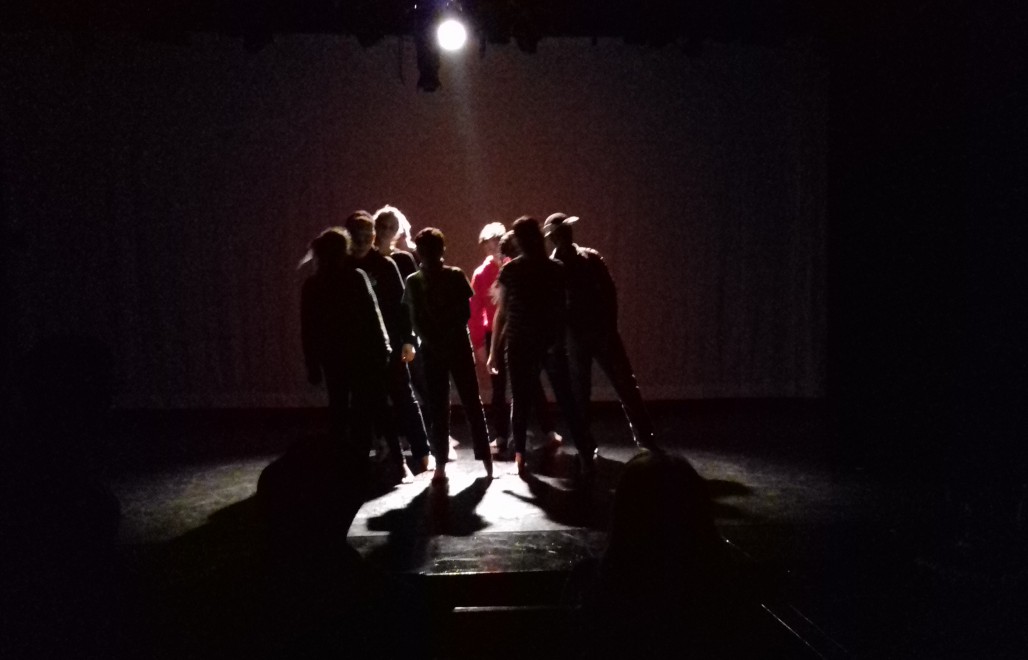A Loop of Exchange: BFS Dance Concert Explores Middle East-US Connections

RESERVE TICKETS ONLINE
“This year’s Middle & Upper School dance concert explores traditions and innovations from dance in the so-called Middle East,” explained Middle & Upper School Dance teacher Jesse Phillips-Fein ’97. That includes a big dose of dabkeh, a celebratory folk dance from the Levantine region. The concert also pays tribute to Beirut-based choreographer Omar Rajeh and Palestine-based Farah Saleh, who both started international dance festivals in their respective countries.
“For them to bring in dance companies from all over the world is a feat given the challenges the region currently faces,” said Jesse. Aside from celebrating dance forms and cultures, there’s an urgent element to the concert. “We’re asking, how is this part of the world viewed in the US and in US media? We’re partly trying to combat Islamophobia and xenophobia.”
Visiting guest artist John Gutierrez worked with IB Dance students on pieces combining hip hop, specifically house and breaking, and contemporary modern dance. Guest artist Ramzi Edlibi taught three different forms of debkeh from different regions over eight to ten sessions with the ninth through 12th grade dance classes and the IB Dance class.
“It was a way to explore how US dance forms influence dance in the Middle East,” said Jesse. “We looked at how and why it has done that. There’s a loop of exchange as dance forms from these parts of the world influence each other. Debkeh has even taken root in Brooklyn. In both debkeh and hip hop, yes they’re being staged as part of the concert but they’re not stage-based forms. It’s what you do at a party.”
Meanwhile Middle School performers explored concepts of what it means to be a refugee and the concept of borders, and what the world would be like with no borders. Sixth grader Jade L., who has been taking dance outside of BFS at Peridance for many years, is performing in a modern piece inspired by what the ensemble discussed about the Middle East in the early stages of the rehearsal process and asking if cultural practices that we usually consider normal can actually be strange. “It has Middle Eastern music but it’s about ordinary things that can be turned into dance,” she said “At the beginning we talked about the bad stuff happening there and also the good stuff.”
Junior Naima B. has been taking West African dance since the was a toddler, and hip hop since Middle School, at Ifetayo Cultural Arts Academy. This year she choreographed her own piece, a tribute to the Black Panthers. For her this isn’t just history, it’s deeply personal family history. “My grandfather was a Black Panther,” she said. “Because of the Black Lives Matter protests, and people in that movement saying things like, it’s not your grandfather’s protest movement, my dance is trying to bring the two together. We couldn’t be here without them.” The piece is choreographed to the song Chains by Usher and Nas.
Senior Noah W. has been performing dance at BFS since sixth grade. Now an IB Dance student, he choreographed his own piece this year as a course requirement, and it had to be something different than any previous dance performance he had created at the school. “I had to be outside of the box. Previously my work was symmetrical and emphasizing one part of the body heavily. It was isolated. With this new piece there’s contact with four dancers. It’s entitled You Can’t Sit With Us/Other. “It’s about kids who are the outsiders and the individual not being accepted,” Noah explained. “It has tragic elements but I want it to be uplifting.”
